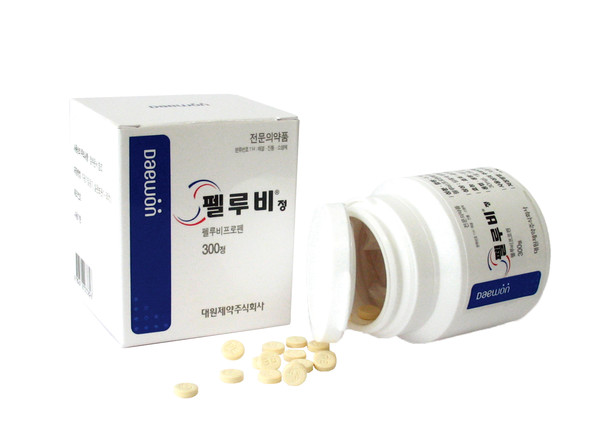Daewon Pharmaceutical's plan for the overseas advance of its non-steroidal anti-inflammatory drug (NSAID), Pelubi, has ground to a halt because of the prolonging Russian war in Ukraine.

Daewon had conducted domestic clinical trials for Pelubi for the past two years to advance to Russia. The company received the final approval for the sale of the drug from the Ministry of Health of the Russian Federation in February.
The company had planned to start shipping three million tablets in the first half of this year and increase the volume according to market demand in partnership with Pharmstandard, the second-largest pharmaceutical distributor in Russia, to market the product. Afterward, the company planned to market the treatment in Russia’s neighboring countries, including Kazakhstan, Belarus, Kyrgyzstan, and Armenia.
Daewon Pharmaceutical Vice President Paik Seung-yeol stressed that export to Russia is meaningful, as the company promoted Korea's new drugs abroad and proved its excellence through local clinical trials.
An industry insider with close ties with Daewon stressed that the company still pushes ahead with its deal to launch the drug in Russia.
"Daewon may not launch the drug in the first half-year but aims to release it in the Russian market in the second half," the insider said to Korea Biomedical Review, asking to remain anonymous due to the issue's sensitivity.
However, with Western countries tightening their sanctions on Russia and some multinational pharmaceutical companies pulling out of the country, a local analyst predicted that the company might have to abandon its plan to enter Russia in the worst-case scenario.
"Even if Pelubi enters Russia, now under various sanctions due to its invasion of Ukraine, it may not be easy to achieve its initial goal," said Lee Jun-soo, an analyst for Prophet Asset Management, in a phone interview with Korea Biomedical Review. "Daewon had enjoyed a robust sales increase thanks to its flu treatment during the Covid-19 pandemic, but the company needs a new growth engine in the post-Covid-19 era."
Lee added that this situation might lead to a crisis for Daewon if the company cannot launch Pelubi as planned.

